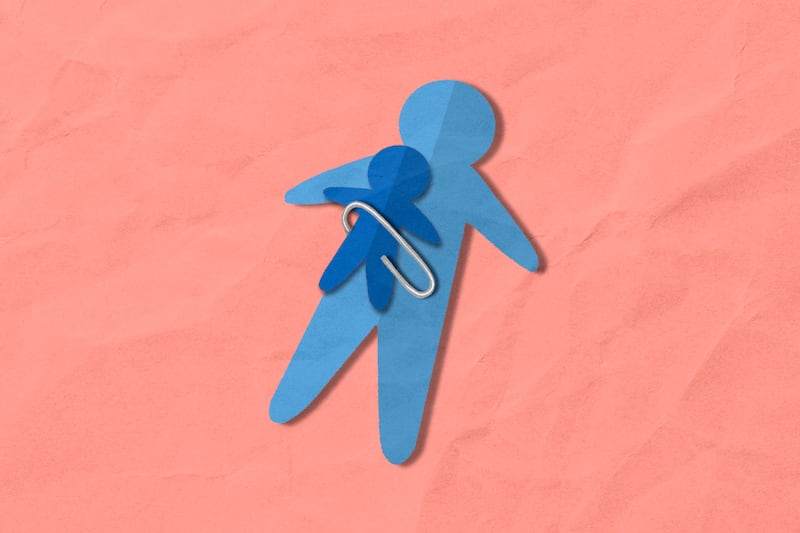Adoption is not having a moment. In recent years, the books about the trauma of adoption have been coming fast and furious.
“You Should Be Grateful” by Angela Tucker chronicles the author’s search for her birth parents after feeling alienated as a Black girl raised by a white family. “Skinfolk: A Memoir,” by Matthew Pratt Guterl, describes the experience of a biological child in a family that has adopted interracially.
Roxanna Asgarian published “We Were Once a Family” about the Harts, the lesbian couple who adopted six Black children out of the foster care system and then drove them off a cliff. And Gretchen Sisson’s new book “Relinquished,” about mothers who have placed their children for adoption, compares the practice to slavery.
Into this rather grim and one-sided conversation comes a new survey of adult adoptees from the National Council for Adoption. On the whole, it turns out that the respondents were actually pretty satisfied with their lives. On a scale from 1 to 5, those who were adopted from foster care rated their lives an average of 3.37, those who had been placed through private domestic infant adoption had a score of 3.56 and those who were adopted internationally had a score of 3.99.
It is worth looking at each of these groups individually to understand the significance of these numbers.
More than 77% of children who were adopted out of foster care either agreed or strongly agreed with the statement, “All in all, I am satisfied with my education.” Given the generally poor educational outcomes of kids who spend time in foster care — in New York City, fewer than a quarter graduate from high school in four years — it is striking that so many are satisfied. And looking at the educational levels achieved by the adult adoptees from foster care, maybe that’s not surprising. Two-thirds of them earned an associate degree or higher.
Kids adopted out of foster care also seemed fairly happy with their marital status and family life, with three quarters agreeing or strongly agreeing that they were satisfied. And more than 70% were satisfied with their careers. This is no small feat. The maltreatment that kids experience before entering foster care and the difficulty of adjusting to living in another home or being transferred into different homes can certainly have a long-term impact. But it appears that, on the whole, most of the kids who are adopted out of foster care are reasonably well-adjusted.
The question is why is this narrative never heard? In a world which prizes lived experience, why don’t we seem to hear the voices of those who were adopted and turned out OK? For one thing, they don’t have much of an incentive to speak out. Many just want to move on with their lives and not write books about their experiences or go testify before Congress about foster care.
The survey also yielded other notable findings. Kids who were adopted by at least one parent who shared the child’s race were actually less happy than those who were adopted by parents who were both of a different race — a mean life satisfaction of 3.59 vs. 3.89. But it is also true that these families and relationships don’t exist in a vacuum. And it’s possible that this number will change over time.
The extent to which every aspect of our society has become viewed through the lens of race may make things more difficult for transracial adoptees. They may come to believe that their lives are not as satisfying as they could have been if they had a parent who shared their race. In “Relinquished,” Sisson writes that she found that birth mothers who at first felt they made the right choice placing their children for adoption have, in more recent years, rethought their decisions. All of these feelings can be affected by the scripts the rest of society places on a family.
Years ago, when I wrote a book about interfaith marriage, I found that younger couples’ challenges to marital satisfaction were more internal — just disagreements between themselves. Previous generations of mixed-faith couples were often unhappy because society around them made life difficult — it was hard to belong to one community or another because both rejected the mixed marriage. It affected their relationships with extended family or even where they decided to live.
And this is true of adoption generally too. When adoption is supported by society as something positive and not compared to slavery, or when articles in the media don’t suggest that abortion is preferable to the misery of being a relinquishing mother or an adoptive child, people will probably be happier with their decisions and their lives. If this survey does nothing else, it will be a reminder that many adult adoptees are actually OK, and it’s useful for others in the same position to acknowledge that.
Naomi Schaefer Riley is a senior fellow at the American Enterprise Institute, a Deseret News contributor and the author of “No Way to Treat a Child: How the Foster Care System, Family Courts, and Racial Activists Are Wrecking Young Lives,” among other books.
Correction: A previous version of this article said children adopted by at least one parent who shared the child’s race were slightly happier than those adopted by parents who were both of a different race.


